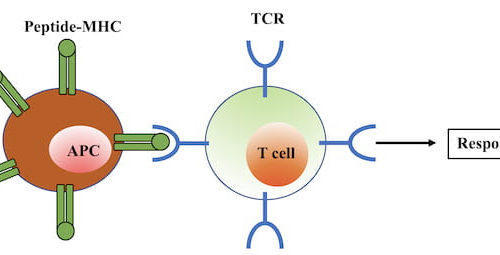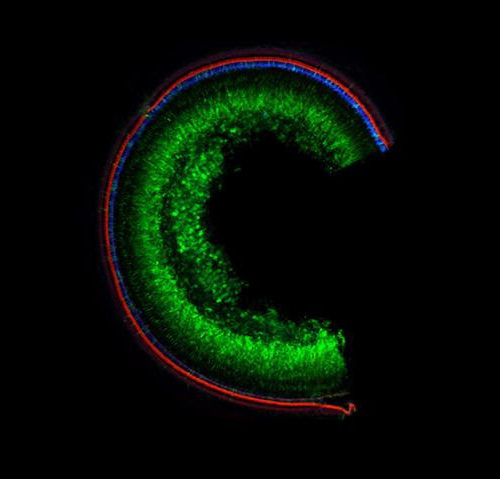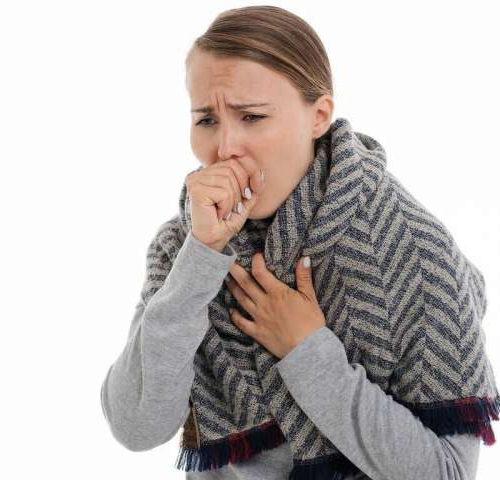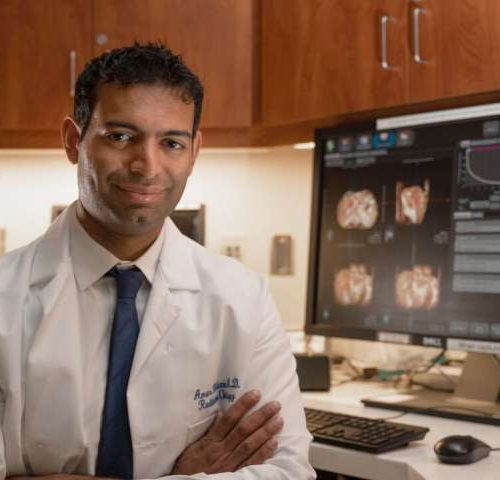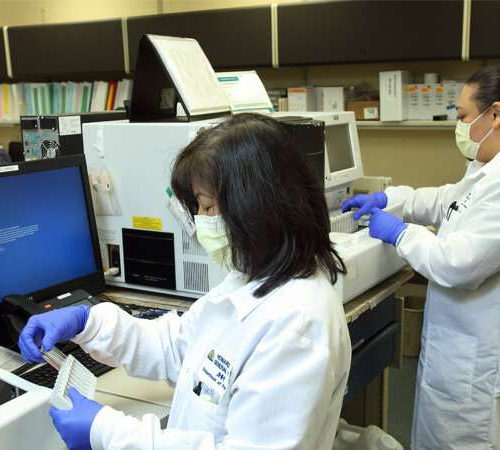This news or article is intended for readers with certain scientific or professional knowledge in the field. Like finding that needle in the haystack every time, your T cells manage what seems like an improbable task: quickly finding a few invaders among the many imposters in your body to trigger its immune response. T cells...
Tag: <span>researchers</span>
Cancer’s reliance on fat could be targeted with new ‘drugs and diet’ treatment
BOSTON UNIVERSITY SCHOOL OF MEDICINE (Boston)–In an effort to improve the survival of patients with myeloproliferative neoplasms, a type of leukemia, researchers inhibited a specific protein (alpha5beta1 integrin) to decrease the number of large bone marrow cells (megakaryocytes) in an experimental model. An increase in megakaryocyte numbers is thought to be the cause of many...
Researchers uncover new insights into Alzheimer’s disease
by Amy Robinson, Florida State University PET scan of a human brain with Alzheimer’s disease. Credit: public domain A new study by Florida State University researchers may help answer some of the most perplexing questions surrounding Alzheimer’s disease, an incurable and progressive illness affecting millions of families around the globe. FSU Assistant Professor of Psychology...
Gene therapy with a new base editing technique restores hearing in mice
Repairing a single mutation in the Tmc1 gene restored partial hearing in mice Key Findings: This is the first example of repairing a recessive gene mutation Repairing a single mutation in the Tmc1 gene restored partial hearing in mice The technique required the use of two viral vectors to deliver the base editing machinery Cells...
Research shows you can’t tell if a person is sick by the sound of their cough
by Bob Yirka , Medical Xpress A small team of researchers at the University of Michigan has found that it is not possible to correctly identify illness in a person simply by listening to them cough. In their paper published in the journal Proceedings of the Royal Society B, the group describes an experiment they...
Missing sodium-channel component may protect against diet-induced artery stiffening
by American Physiological Society New research in mice finds that deficiency in one small component of a signaling pathway may protect against artery stiffening and subsequent kidney disease associated with a high-fat, high-sugar diet. The study is published in the American Journal of Physiology-Renal Physiology. Consuming a western diet—typically high in fat and refined carbohydrates,...
People who eat a late dinner may gain weight
WASHINGTON–Eating a late dinner may contribute to weight gain and high blood sugar, according to a small study published in the Endocrine Society’s Journal of Clinical Endocrinology & Metabolism. Over 2.1 billion adults are estimated to have overweight or obesity which make health complications like diabetes and high blood pressure more likely. Some studies suggest...
Some types of prostate cancer may not be as aggressive as originally thought
by University of California, Los Angeles Researchers at the UCLA Jonsson Comprehensive Cancer Center analyzed gene-expression patterns in the most aggressive prostate cancer grade group—known as Gleason grade group 5—and found that this grade of cancer can actually be subdivided into four subtypes with distinct differences. The findings may affect how people are treated for...
Beware of false negatives in diagnostic testing of COVID-19
by Waun’shae Blount, Johns Hopkins University School of Medicine Maribel Jose and Zhellann Aguilar test Covid-19 samples in the lab. Credit: Keith Weller/Johns Hopkins Medicine One of the most commonly used diagnostic tools, particularly during this pandemic, is the reverse transcriptase polymerase chain reaction test (RT-PCR), which uses a person’s respiratory sample to detect viral...
How do we disconnect from the environment during sleep and under anesthesia?
In normal sleep states, sounds fail to penetrate brain regions mediating consciousness and memory, and this natural disconnection is caused by low noradrenaline activity, say Tel Aviv University researchers During sleep and under anesthesia, we rarely respond to such external stimuli as sounds even though our brains remain highly active. Now, a series of new...

